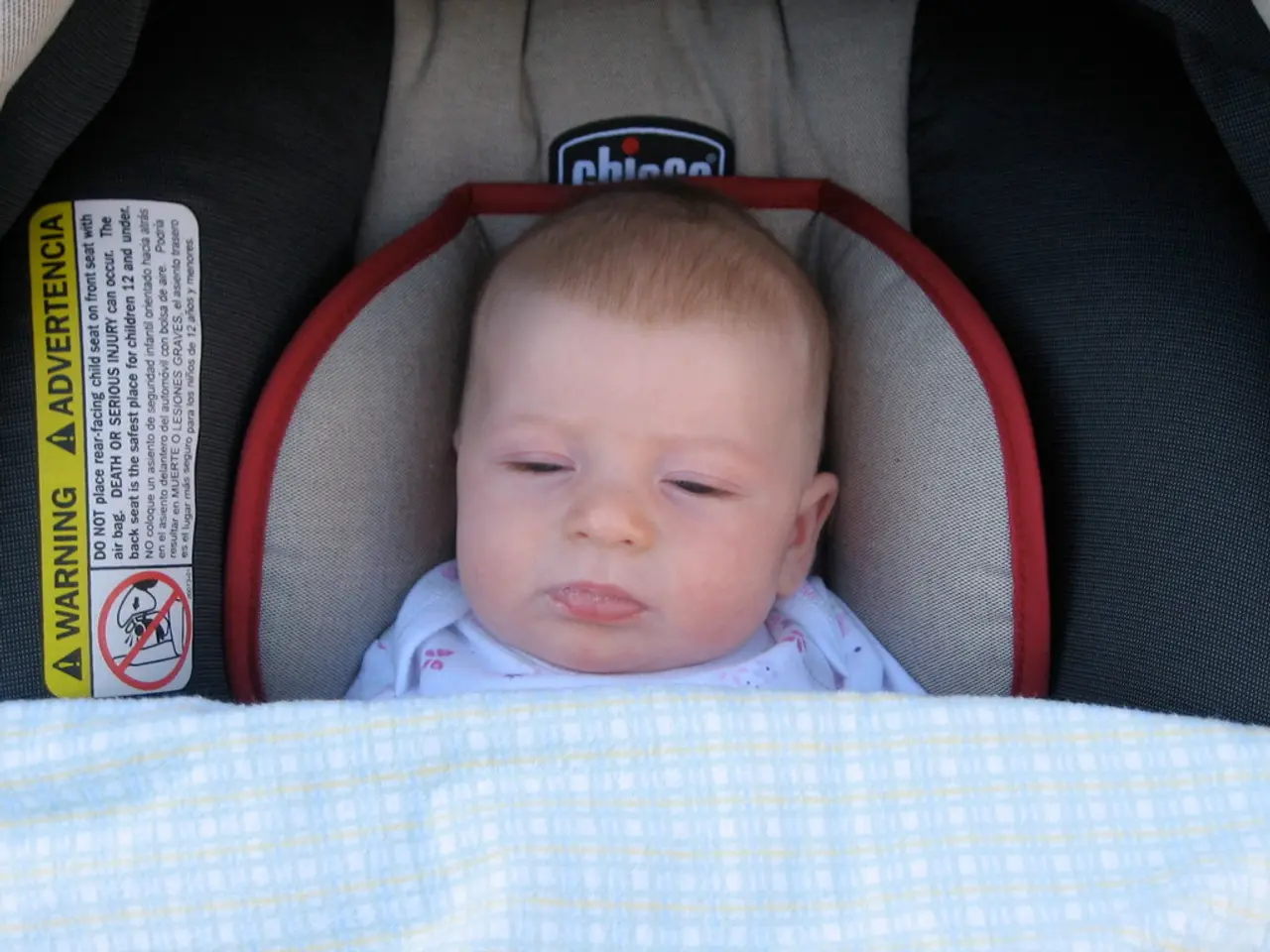Advice for Parents on Handling a Child Ingesting a Button Battery
In a concerning development, a recent study published in the journal Pediatrics has shown a significant increase in the number of incidents involving the ingestion of button batteries by children.
Button batteries, small, round, flat batteries often used to power small electronic devices, are common household items that may be easily accessible to children. Common household items that may contain them include remote controls, watches, calculators, hearing aids, and some toys.
When ingested, these batteries can cause serious harm to children. Symptoms of button battery ingestion include refusing to eat or drink, coughing or choking, chest pain or discomfort, difficulty swallowing, excessive drooling, noisy breathing, a hoarse voice or sore throat, abdominal pain or vomiting, bloody stool, saliva or vomit.
It's crucial for parents and caregivers to store these batteries safely out of reach of children to prevent ingestion. If a button battery needs to be discarded, it's important to place tape on both sides of the battery and store it securely until it can be recycled.
In case of a suspected ingestion, parents should call Poison Control (1.800.222.1222) or the National Battery Ingestion Hotline (1.800.498.8666) right away. It's also advisable to call the child's doctor or 911.
The study, conducted over several years, showed that the number of incidents involving the consumption of a button battery rose by more than 90%. This alarming trend highlights the need for increased awareness and safety measures.
Dr. Lisa Diard, a pediatrician, stated that almost a million kids came to the emergency room for foreign body ingestion, with the rate of ingestion going up, particularly for batteries. She emphasised the importance of parents being aware of what objects in their home contain button batteries and keeping them out of a child's reach.
While honey has been suggested as a potential protective measure, it's important to note that it cannot prevent injury. In fact, it's extremely dangerous for children under a year old. A 2018 study demonstrated that honey acts as a "protective esophageal irrigation" for children over the age of 1 who have swallowed a button battery.
To mitigate the risks, Dr. Diard recommends using child-proofing devices to keep button batteries secure in devices like car keys. She also advises that toys that use button batteries should only be played with under supervision.
As parents and caregivers, it's our responsibility to ensure the safety of our children. Having the number for poison control (1.800.222.1222) readily available in our cell phones can be a lifesaver in an emergency. Let's work together to keep our homes safe and our children healthy.
Read also:
- Nightly sweat episodes linked to GERD: Crucial insights explained
- Antitussives: List of Examples, Functions, Adverse Reactions, and Additional Details
- Asthma Diagnosis: Exploring FeNO Tests and Related Treatments
- Unfortunate Financial Disarray for a Family from California After an Expensive Emergency Room Visit with Their Burned Infant








